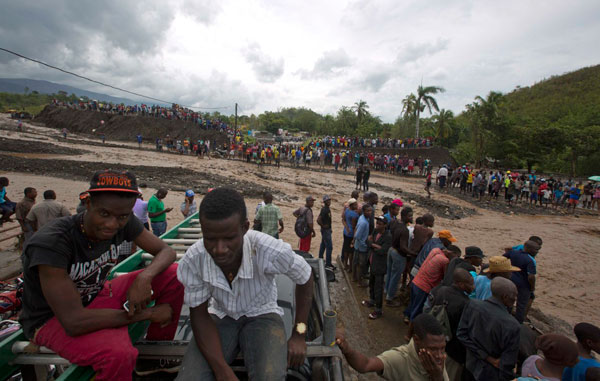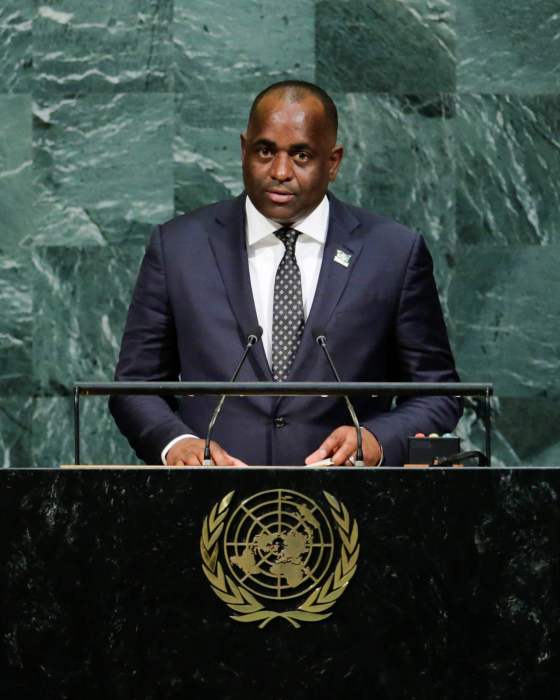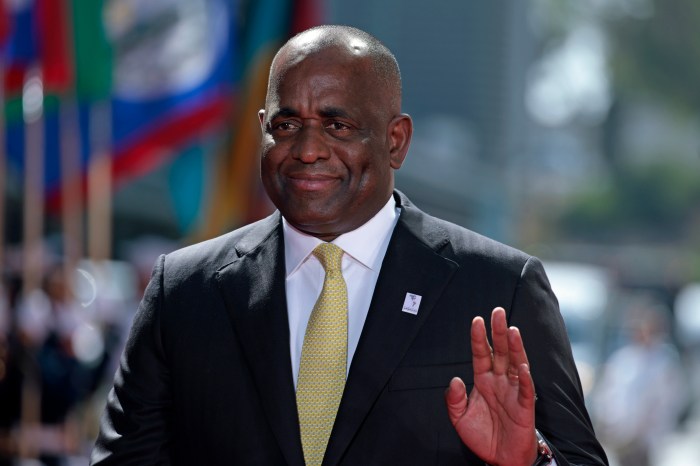Weather forecasters here say dangerous Hurricane Matthew now has the United States East coast in its its sights after hammering the Bahamas, Haiti, Jamaica and the Eastern Caribbean killing at least 113 people in the Caribbean including 108 people in Haiti.
After weaving through the Windward Passage between Haiti and Cuba on Tuesday and Tuesday night, AccuWeather said on Wednesday that Matthew turned northwestward across the Bahamas. Matthew is expected to make landfall in Florida as a Category 4 hurricane.
“Some fluctuation in strength will occur with Matthew, as the hurricane is influenced by the mountainous islands of Hispaniola (Haiti and the Dominican Republic) and Cuba in the short-term and then less-favorable atmospheric conditions over the northern Bahamas later on,” said AccuWeather Hurricane Expert Dan Kottlowski.
Kottlowski said Matthew made its first landfall on the Haiti Tiburon Peninsula Tuesday morning, before making a second landfall on the eastern tip of Cuba Tuesday evening.
“From Haiti to the eastern tip of Cuba, the threat for flooding rainfall, mudslides, destructive winds and dangerous surf will gradually lessen as Matthew moves northwestward into Thursday,” AccuWeather said.
“The slow-moving nature of the hurricane will translate to days rather than hours of pounding surf, high winds and heavy rain on the Bahamas,” Kottlowski said.
In addition to life-threatening conditions, he said major property damage and inundation is likely due to powerful winds, storm surge and flash flooding.
“A storm surge of 10-15 feet can occur, along with the potential for a foot or more of rain on some of the Bahamas,” AccuWeather Meteorologist Mike Doll said.
“People are encouraged to heed evacuation orders as they are given,” he added. “Small craft should be secured in port.”
AccuWeather said travel disruptions will also occur in the Caribbean, warning that cruise, freight and charter airline interests should be prepared to change itineraries until the storm has passed.
It said commercial airline delays and cancellations are likely as the storm approaches, and that some airports will close.
“In the wake of the storm, many of these areas will be in need of assistance,” AccuWeather said. “Power may be out for days. Food, fresh water and medical items may be in short supply.”
Meantime, United Nations relief agencies announced that they are mobilizing to assist, if requested, countries that are in the path of the dangerous Category 4 storm that is pummeling the Caribbean region.
“This is a very powerful and slow-moving [storm], making its potential impacts bigger. In Haiti, it could be potentially catastrophic,” Clare Nullis, spokesperson for the World Meteorological Organization (WMO) told reporters on Tuesday at the regular bi-weekly press briefing in Geneva.
She added that while Haiti is the most vulnerable of all the islands in the path of Hurricane Matthew and the most exposed, other islands, such as Jamaica, Cuba and the Bahamas would also face risks.
According to WMO, the eye of Matthew was forecast to move near eastern Cuba on Tuesday, and move near or over portions of the south-eastern and central Bahamas overnight and Wednesday, and approach the north-western Bahamas Wednesday night.
With maximum sustained winds near 145 mph (230 km/h), with higher gusts, Matthew is expected to remain a powerful hurricane through at least Wednesday night, WMO said.
Meanwhile, the UN World Food Program (WFP) and the UN Children’s Fund (UNICEF) are mobilizing resources to aid the people of Haiti.
“Our priority is to support the governments’ interventions to save lives and meet the food needs of the most vulnerable and food insecure people affected,” said Miguel Barreto, WFP Regional Director for Latin America and the Caribbean, who added that the agency is mobilizing its emergency staff and resources to deploy in the wake of the storm.
In addition, WFP said it has arranged enough food supplies to feed 300,000 people for a month.
Valuable stockpiles have been allocated to primary locations, with a prompt access to remote areas if needed, it said.
For its part, along with food supplies, UNICEF said it is also preparing life-saving aid for 10,000 people in Haiti.
Marc Vincent, UNICEF Representative in Haiti, described the hurricane as “the worst storm Haiti has seen in decades.”
He also expressed concerns regarding access to enough safe water and the high risk of water-borne diseases in children.
According to UNICEF, less than 20 percent of people in Haiti have access to proper sanitation, while almost half of the population utilizes unsafe water resources.
“Such unsanitary conditions and water damage might increase the number of cholera cases in the region,” UNICEF warned.
In Jamaica, the Jamaica Tourist Board (JTB) said it was “happy to report it is business as usual for the country after Hurricane Matthew passed the island early this morning [Monday].
“While a band of heavy showers that fell on Sunday caused temporary flooding in some parts of Kingston [the capital], there was little or no damage to the island’s resorts and attractions,” JTB said. “Weather conditions continue to be good and visitors are engaged in normal activities.”
“We are thankful that destination Jamaica was spared a direct impact from Hurricane Matthew and that our on-shore partners did not suffer damage,” said Paul Pennicook, Jamaica’s director of tourism. “Our thoughts and prayers are with our Caribbean neighbors as Matthew continues its journey northward.”

























